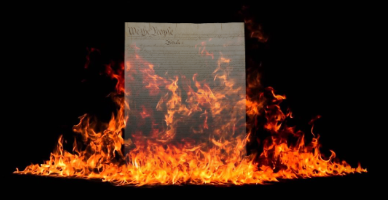
The United States has a proud history of limiting the government’s powers.
This is a good thing.
And necessary, really, if you want your State to be a democracy.
After all, a State with no effective limits on legislative or executive power isn’t likely to remain a democracy for long, even it it starts as one.
But also the governing class of of the United Sates has never been fully comfortable with a limited State, and have never fully trusted the citizens, so they arranged a system by which the government can bypass pretty much any of these limits by declaring an emergency.
This is … less of a good thing.
We’ve managed to bungle along for 250 years without this getting too far out of control, though it certainly has been abused pretty egregiously more than once over those years.
So that’s worked OK, if not actually well.
But now? Now this setup is being tested much more vigorously than it has in the past.
And it’s failing; badly.
The “emergency” tariffs are a good example:
- declaration of imaginary emergency
- activate emergency powers
- massive abuse of emergency tariff power
- slow and deferential response from the courts
- viola! “emergency” power magically becomes normal power
Now, while these tariffs are doing significant damage to the domestic economy and our international reputation and standing this is not really a significant threat to the country’s status as a democracy.
But using the military domestically is such a threat.
Pulling the California National Guard under federal command and deploying them alongside regular marines into Los Angeles is, in fact, allowed for as an emergency power. Specifically in case of invasion, rebellion or a breakdown of civic order sufficient to render normal law enforcement inadequate.
Ya know, things that are real emergencies.
Which a few citizens interfering with unidentified federal maybe-officers pulling random people off the streets is most certainly not.
And that’s being as generous as possible here.
I didn’t even use the phrase “the President’s private gestapo” once.
So, there’s no emergency in either of these cases.
But the courts have been excessively deferential to the federal government on both.
Though the initial response on the National Guard case was good and appropriate, but that order was stayed by an appeals court that so far has shown no indication that they’ll be actually dealing with it.
Kudos to Judge Breyer for the initial order, but shame on the 9th Circuit appeals panel.
This is another time when “norms” are the problem.
Clearly, the laws authorizing these emergency powers need to be written to explicitly state that the basis of the emergency declaration can (must) be reviewed by the courts for factual accuracy and truthful interpretation in order for the judiciary to be willing to get involved.
And that any exercise of the emergency powers can (must) be reviewed by the courts for appropriateness to the declared emergency.
And they should probably specify some form of penalty for abuse or frivolous claims of “emergency”.
Maybe an automatic impeachment and handover to the Senate?
Something, at least.
Because, as I’ve said before, if there’s no cost to the State pushing the boundaries of the law then it will never stop doing that.
- Bad Politics: Welcome To The Jungle Primary - 2026-02-16
- AIpocalypse: Generative AI Cannot Be Reliable - 2026-02-13
- C’mon Democrats: Zero Votes For Fascism - 2026-02-11

One thought on “Emergency Powers: Not Just For Emergencies Anymore?”